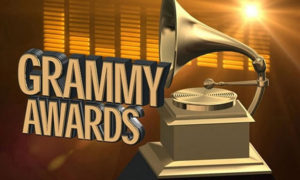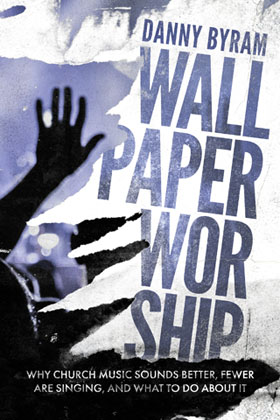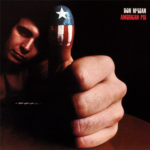
The word worship has metamorphosed. It is one of those many words floating around that once had specific meaning but has culturally morphed into new relevance. Other examples: thread, stream, post – you get the idea.
Worship used to be primarily a verb – something we did corporately or privately when we gather into a house of worship. Now it is also a noun, a traded commodity, a multi-billion-dollar industry tied to the entertainment and production-gear retail world, akin to the latest talent reality shows, playing to millions of unnamed, anonymous online fans of worship songs and worship artists. Worship has become its own style of music.
Am I cynical or a realist? Probably both. Before you go off on me with this, first consider the reactions I frequently hear from semi-professional church musicians. They cringe at playing a hymn or any music piece outside the worship model. Yet, many equally cringe with many new songs they are required to memorize. Why the cringing? Musicians will confess – quietly, behind the scenes – the musicality of worship lacks in diversity or musical creativity. In other words, if they are honest, musicians will tell you that as a style of music, worship becomes quickly rote and predictable.

Example: I had to learn the latest 12-15 most popular worship songs for an upcoming conference. I found each song on YouTube and began my rehearsal. Most start with a low synth pad sound, covered in a breathy vocal line. Then follows the rhythmic groove with guitar, bass and drums. Each track has a simple riff (ie, a basic scale pattern meant to be a musical hook played by a lead guitar or piano). Many of these riffs are so similar, it’s difficult to discern which song I am in when I hear it. They are purposely simple so they can be reproduced by volunteer musicians possessing basic skill levels; I get it.
By the middle of the songs, vocalists are full voice, the band is playing the 1-4-6-5 chord progression (or 1-5-6-4, 1-6-5-4 or another variation). There is a full synth pad or guitar distortion pedal sound underlying everything to give a pop power-ballad sound. Eventually most songs will end as they start, finally capped with a cymbal-swell cadence, giving the audience their cue to applaud.
There you have it. Worship is a musical style, a specific sound. To use music outside this model in worship, or an original arrangement of a current song, risks being pegged as out of touch or old school. It assumes congregants will not accept anything other than “the way it sounds on the radio.” Flash: not all congregants listen to “worship radio” which may be why so many simply squint and stare during music segments.

It amazes me how many styles of music are out there, being enjoyed, EXCEPT in church. Watch the Grammy Awards or the Academy Awards show and count how many styles of music are used in these productions: acoustic, jazz, classical, choral, gospel, country, folk, hip hop, alternative, Broadway. There are so many great choices to enjoy, except in worship.
Recently I had a short-lived conversation with a leader of one of the big worship companies (I won’t name the company because you’d know them). I asked him, “What if an oboe or clarinet player came up to you in church and asked how he/she could fit into the worship ministry – what would you say?” His response: “I have no idea.”
“A garden’s beauty never lies in one flower.”
―
I am dying to hear comments from anyone experiencing musical creativity in sound, style and execution in your worship services. Are you out there?








At our church, the congregation is from two churches that merged. We have seniors and we have young families. The worship team plays guitars, a synthesizer, and drums–occasionally augmented by a harpist and a cellist. The music is selected with the age range in mind and includes a hymn each week along with more contemporary “Praise” songs. Yesterday we closed the service with the Doxology (a Cappella). Sound level is enthusiastic but reasonable. The congregation does sing and can be heard.
Terry, thanks for the comment. Interesting about the Doxology (The Old 100th). Our daughter in law, an accomplished worship leader and guitarist, led the Dox as a closer once at her church, acapella. Young and old alike went through the roof with participation, tears, and comments afterward that “this was a worship moment.” Let’s pray more get on board with the musical heritage – that using something old is not “anti-contemporary” – it’s just “being us!”
Yes, bro, we’re out here. Our music director is a classically trained pianist with a performance degree and decades of professional experience who can and does play virtually anything all along the spectrum from bull frogs and butterflies to Bach. She has two sons, one a classically trained violinist (first chair in a major metropolitan symphony orchestra), the other a classically trained cellist. Our guitarist is a picker and grinner from the 1970’s Jesus Movement who is also a drummer with a degree in percussion; we also have a music teacher who plays saxophone and flute. We never know what’s coming on any given Sunday, but it’s always awesome and appropriate. Nothing showy, just folks inviting us to join them in worship as they exercise their incredible gifts.
Thanks for comments Craig. I’m fascinated with “we never know what’s coming on any given Sunday…” May your tribe increase!
I like the valuable info you provide for your articles. I will bookmark your weblog and test again here frequently. I’m moderately sure I will learn lots of new stuff proper here! Good luck for the next!
Thanks! Wish I had hair…